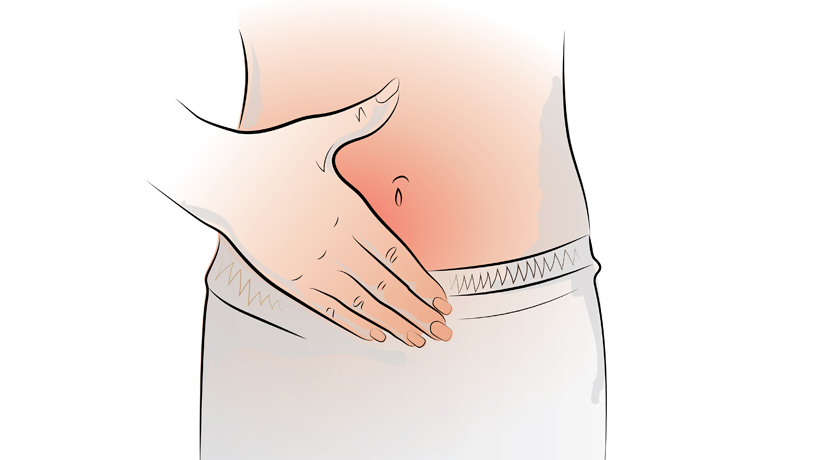Whether you’ve just consumed an unhealthy amount of Mexican food or accidentally grabbed some questionable meat from the cart outside for lunch yesterday, we’ve all experienced sudden stomach pain that usually subsides on its own within a few days. But what crosses the line from sudden to alarming? Here are some symptoms which may accompany your stomach problems and indicate signs of something more serious (if so, it’s best to check with a medical professional).
Heartburn
If your meals aren’t super-sized or overloaded with spice these days, yet you’ve been regularly feeling a burning sensation after eating, you may be a victim of gastroesophageal reflux disease (GERD), which occurs when your stomach acid frequently flows back into the tube connecting your mouth and stomach (esophagus) and irritates its lining.
Blood in stool
According to Niket Sonpal, M.D., a gastroenterologist and clinical professor of medicine in New York City, “your poop is a window into what’s going on in your gut.” Don’t be embarrassed or even afraid to ask your doctor if something seems off like blood in your stool. Darker, almost blackish blood, could indicate signs of a potential ulcer whereas a brighter red or maroon-colored blood could point to a possible hemorrhoid. “The bottom line is, blood in the stool is never considered normal,” says Sonpal.
Getting stopped up
Though many can assume that we can blame constipation on our systems not getting enough fiber, it could also reflect a thyroid problem. Constipation is one of the most common symptoms of hypothyroidism (underactive thyroid) as a healthy thyroid would conversely regulate the bodily processes smoothly and efficiently.
Diarrhea
Irritable bowel syndrome, which is marked by episodes of diarrhea and lower-abdominal pain, may involve your gut releasing excess fluid into the GI tract during digestion, or food passing too quickly through your system. Although there are treatments for IBS, consider avoiding personal triggers – such as particular foods, extreme stress and/or travel – to manage symptoms.
Sources:
http://www.health.com/digestive-health/stomach-problems
https://www.womenshealthmag.com/health/a19936592/common-stomach-problems-when-to-worry/



